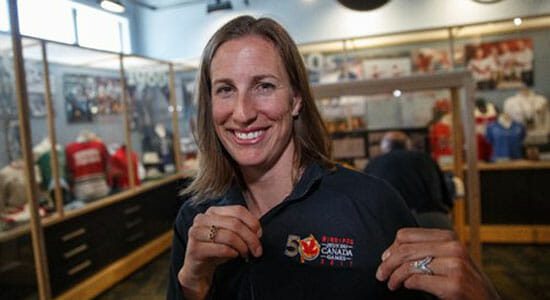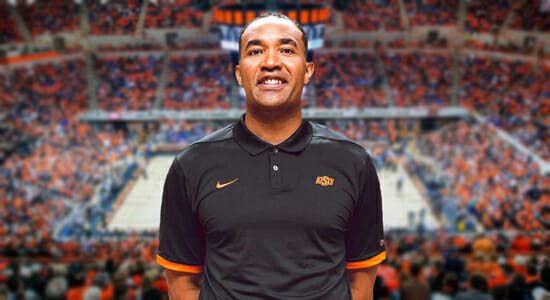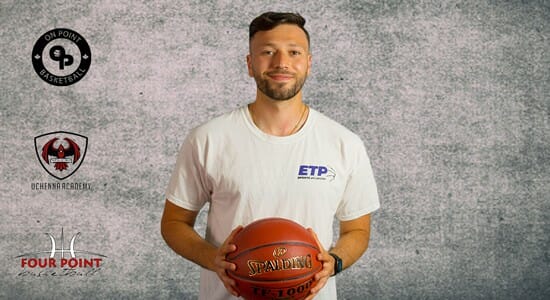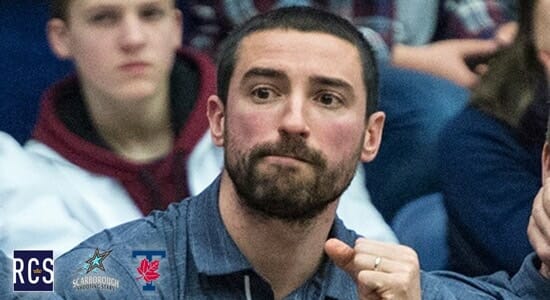
Former Olympian Janine Stephens Takes Her Athletic Experience Into Her Coaching Career
Janine Stephens (Hanson) | Provincial Head Coach | Manitoba Rowing Association



Sport gives you so many tools to be successful in life. The lessons of good, clear communication, dealing with challenging people, learning to fail, experiencing how your attitude can affect those around you, taking criticism well, and pushing yourself to be your best.
Janine Stephens (Hanson)
Provincial Head Coach
Manitoba Rowing Association
Tell us about your role as the Provincial Head Coach for the Manitoba Rowing Association. What does a typical day look like for you?
I coach the Manitoba high-performance athletes and the year of the Canada Games, I coach that group of athletes too.
A day is different for me from May to October while we are on the water training, compared to November to April, while we train indoors.
The athletes have two daily workouts, and I am with them for nine or 10 of the 12.
On water practices are my favourite as I drive a motorboat alongside the boats and talk to them with a megaphone.
I call the workouts, both on and rest periods, and well as provide technical feedback during or between pieces.
I am also always on the look out for logs or other debris that may be a hazard floating down the river. As the rowers go backwards, this can be a help to them, and less disruptive to their boats.
Between practices, during the day, I always have many projects and things on the go.
I had no idea, before I got into coaching, how much admin type work was involved. Writing programs, learning, planning ahead, regatta planning, meetings with other coaches for learning and support, communication with the board, getting quotes for new equipment or technology.
My days fly by, and I love what I do, so that makes it easy to do.
---1.jpg)
---1.jpg)
You have experience as an athlete, representing Canada at the 2008 and 2012 Olympic games and competing in other world championships. How has your time as an athlete influenced your coaching philosophy?
It absolutely has an impact on how I coach.
Something I always did as an athlete is bring my best self to the boat, and every stroke I took, I tried to do the best stroke.
When you are putting in so many hours of training, you want to make sure that it is productive training.
I am always on the athletes that even when they are taking little pressure strokes, to still take good strokes.
It may not make a difference tomorrow, but in the last 500m of a tight race, those good strokes will add up and help you keep your form and row well, and hard, to the end.
Other things like hydration, nutrition, mobility, being on time, all add up, and over time, as a coach I can see that.
I have been bringing in better experts to address and discuss these things so that the athletes don’t only hear it from me, having been there, but also from those who are better at explaining the WHY of each of those things and how they add up.
---2.jpg)
---2.jpg)
The Manitoba Rowing Association named you Head Coach in 2017, which ended up being an extremely successful year. What did you bring to the team and what was your mindset going into a new coaching position?
My most important job in that situation was to try and create a safe and encouraging environment.
I really believe that if you can create a space where people want to come and feel comfortable being there, that is when you can get the best out of them.
I don’t force people to come to practice, I don’t have to, I create a space for them to thrive and as they see progress, that is motivating, and they make the choice and want to come and work hard.
That first summer was really a transition from athlete to coach for me. It was easy in the sense that I knew the sport, but with each race, I always questioned if I had had enough time to give them each the tools needed for every part of the race.
Had I given them the proper equipment to race? I was always questioning if I had done enough for them.
Now, four years later, I am still so invested in every race and want them to be able to have their best race, but I am less nervous and feel a bit more confident for them.
---3.jpg)
---3.jpg)
Not only have you been awarded for your athletic ability, but you’ve been recognized for you dedication to the sport of Rowing. Tell us what you love about the sport and what it means to you to be successful as both an athlete and a coach.
Sport gives you so many tools to be successful in life.
The lessons of good, clear communication, dealing with challenging people, learning to fail, experiencing how your attitude can affect those around you, taking criticism well, and pushing yourself to be your best.
All of these lessons translate into work and coaching.
I had no idea what rowing was when I started, and twelve years later had travelled the world and was on the Olympic Podium. It was never a goal of mine to get there, but by doing the little things right, I slow paved the way for myself to get there.
This sport taught me so much and gave me many opportunities.
First being able to represent your province and attend the Canada Summer Games, and then coach at the Games, that was a full circle moment for me, and I just saw how much I loved the sport.
I started coaching because when I did a guest coach appearance, I would come home and talk with such great excitement about the changes the athletes had made.
It was my husband who saw my joy, and said, that is what you need to be doing! I owe it to him for helping and supporting me through it all. I wouldn’t be able to do it without him.
---4.jpg)
---4.jpg)
As someone who’s seen as a mentor and role model to upcoming and current young women in Rowing, what are some words of wisdom that you often like to share with your athletes? What are some of the biggest takeaways from your athletic and coaching career so far that help you be a good leader?
1When you are at practice, be at practice. Leave your problems, fears, struggles in the parking lot. When at practice or races, be all in.
2I always have my athletes put school first. Rarely do they need to miss for school, but it does happen, and I am ok with it. School matters.
3Lastly, just be you, and choose positivity. It makes a world of difference for those around you – people want to be around good energy.
---5.jpg)
---5.jpg)
Janine Stephens, Coach for the Manitoba Rowing Association, has been successful as an athlete and as a coach. As a former Olympian, she is able to relate to her athletes and coach from a different perspective. You can tell she has a passion, not only for this sport but for the well-being of her athletes. She is able to have a positive impact on her athletes, and that is something any coach should be truly proud of. Janine talks about the importance of sport and the things it can teach you outside of competing. Her leadership style is great and I love that she brings in outside sources to give her athletes different perspectives and advice. Janine creates a space that will allow her athletes to thrive and feel comfortable, which as a former athlete myself, is extremely valuable and really dictates the outcome of your teams’ success.
The Latest







